In New York cannabis, no name carries more weight than Smoker’s Club co-founder Shiest Bubz. Learn how the Harlem native became NYC’s “Willy Wonka of Weed” in Leafly’s latest 28 grams of game.
Shiest Bubz is taking the term “legacy,” back. In cannabis circles, it’s become a buzzword. Its definition depends on who you ask. And if you ask Bubz, the wordplay is becoming condescending.
“They’re like, ‘Oh, we need to help legacy learn how to transition from here to there.’ Who are you talking about? Not White America. Can’t be talking about them. Impossible. You’re talking about Black people… At the end of the day, it’s not White legacy operators that they’re looking for.”
Shiest Bubz to Honeysuckle
That’s why Bubz said he hasn’t rushed to join the licensed game. Over the course of three decades, he’s sold more pounds of flower in New York than any partner he could hope to find before it was legal, and without getting caught up in the state’s historically aggressive Drug War enforcement. Now, New York has already “pre-approved” his Smoker’s Club team to participate in the legal industry, according to NYC Cannabis Czar Dasheeda Dawson. But Bubz is taking his time to survey the field as lawmakers and regulators sort out New York’s adult-use industry.
In this edition of 28 grams of game, Shiest Bubz explains how he became the emperor of New York’s underground weed scene, and shares his vision for building an even larger legacy in the regulated industry.
1. Take initiative
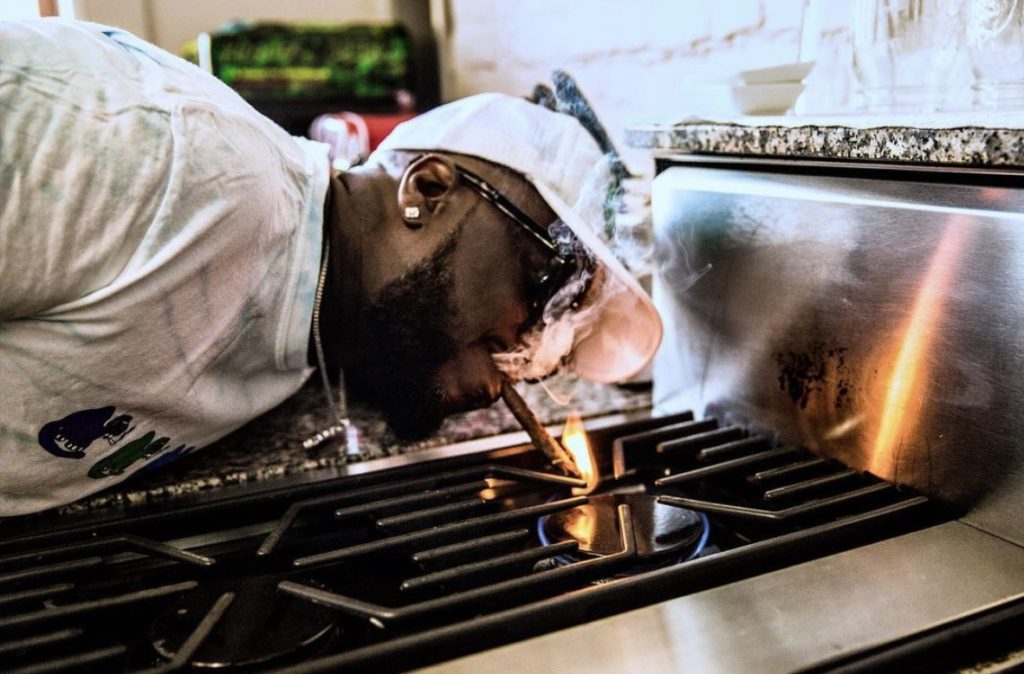
“It started in high school, chipping in to buy weed. Then getting an ounce of weed and cutting the hike to go get the weed. So we don’t need to hike, I got the weed already, just give me the money. That was my first flip off weed. I flipped a profit.”
Shiest Bubz
2. Document the process
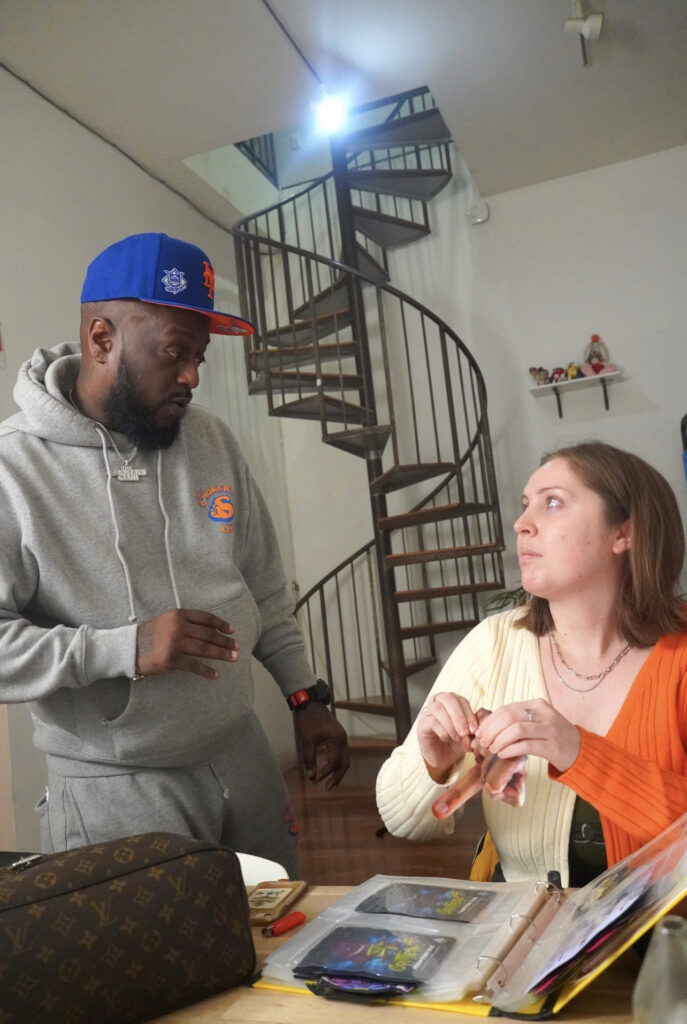
In 2022, Bubz launched the Heavy Smoke podcast to document weed’s legal renaissance. He’s already interviewed active legends like Juan Quesada of Backpack Boyz and Steph.V of Certz, helping preserve cannabis history in real time. He’s also got an encyclopedia of classic bags and strains he shared with Leafly this winter.
3. Plant firm roots
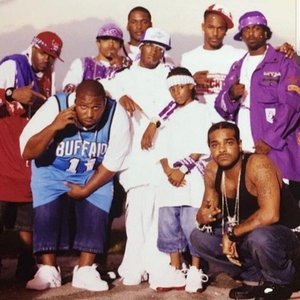
In the 2000s, Shiest made his name in music by founding Purple City Records, which contributed heavily to New York’s underground mixtape scene and the careers of artists like Smoke DZA. Bubz also worked with Harlem icons Cam’ron, Jim Jones, and Juelz Santana, all three of whom are poised to follow his footsteps into the legal cannabis industry. Bubz and company’s influence is well documented in DVDs and tapes that once circulated nationwide. Some videos still live on YouTube, giving context to those looking to understand how guys with names like Shiest Bubz and Luka Brazi became the top dogs in New York’s budding cannabis industry.
4. Stay close to the plant
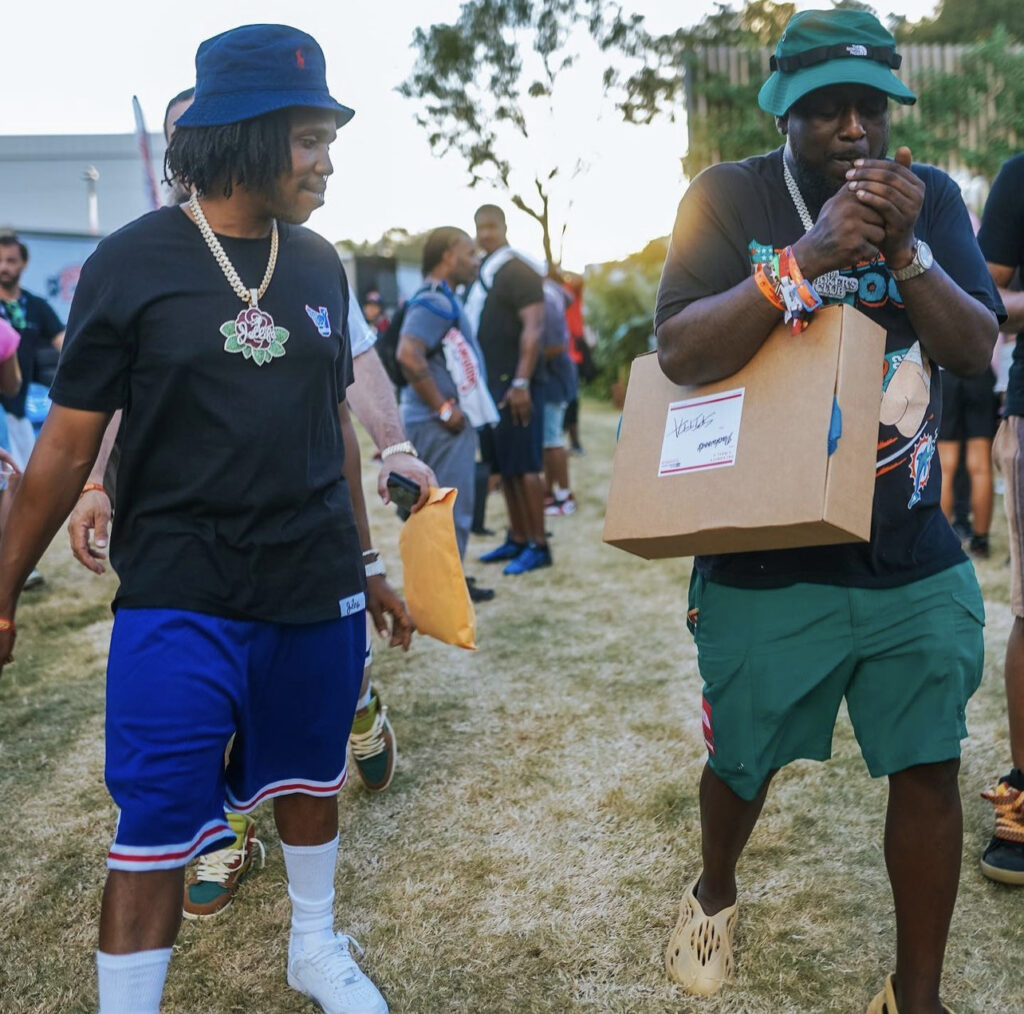
After running record labels, clothing lines, and events, Shiest realized that cannabis is his favorite product to market.
“My biggest performer, my biggest artist, my most successful thing that I was able to promote has been cannabis. It doesn’t talk back. I’m always able to sell it. No feelings, no emotions attached.”
Shiest Bubz to Honeysuckle
5. Remember your history
When asked which strains are essential to New York’s rich cannabis culture, Bubz doesn’t hesitate. “Chocolate Thai,” he told Leafly, “Back in the days, everybody in Harlem, Brooklyn, and The Bronx smoked some Chocolate Thai.”
“(Plus), Hawaiian, Sour (Diesel), (Purple) Haze, Kush, Afghani, all types of shit. Acapulco Gold. We ain’t even really know what that was. We thought that was some gas. But as you get older, you realize when the weed starts turning yellow and stuff like that, that just means it is old.”
Shiest Bubz on New York’s classic cannabis strains
6. Tend to the seeds
“My first job as a kid, I worked at a daycare center. I was like 12 years old. It was a summer job at the daycare center that I actually went to, Gardens Nursery School,” Bubz told Leafly. He’s continued to be a mentor to others ever since, investing in people who share his passion for good bud and good business at every stage of his career.
7. Study the pioneers
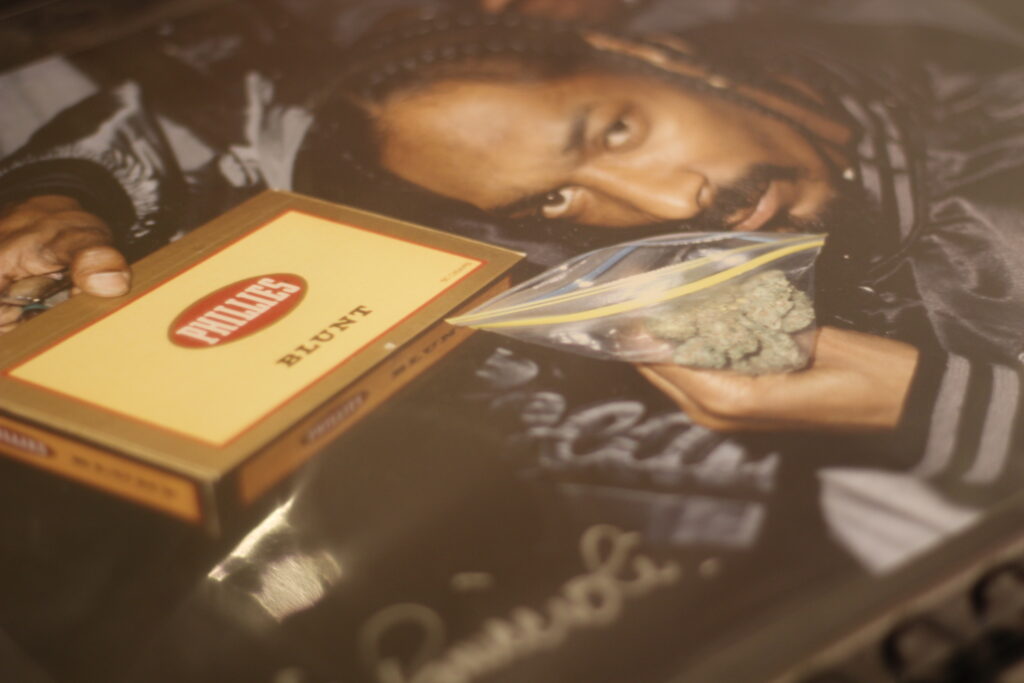
“In my era, the people that I looked at as the big stoners were like Snoop Dogg, Method Man, Redman. Basically any rapper that was talking about weed. Weed was always an illegal thing. So if you talked that you were really blowing that big, big weed like that, then nine outta 10 times, you had some notoriety.”
Shiest Bubz to Leafly
Related
The NYC legend behind Redman’s 20-year-old stash of Branson buds
8. Don’t get gassed up
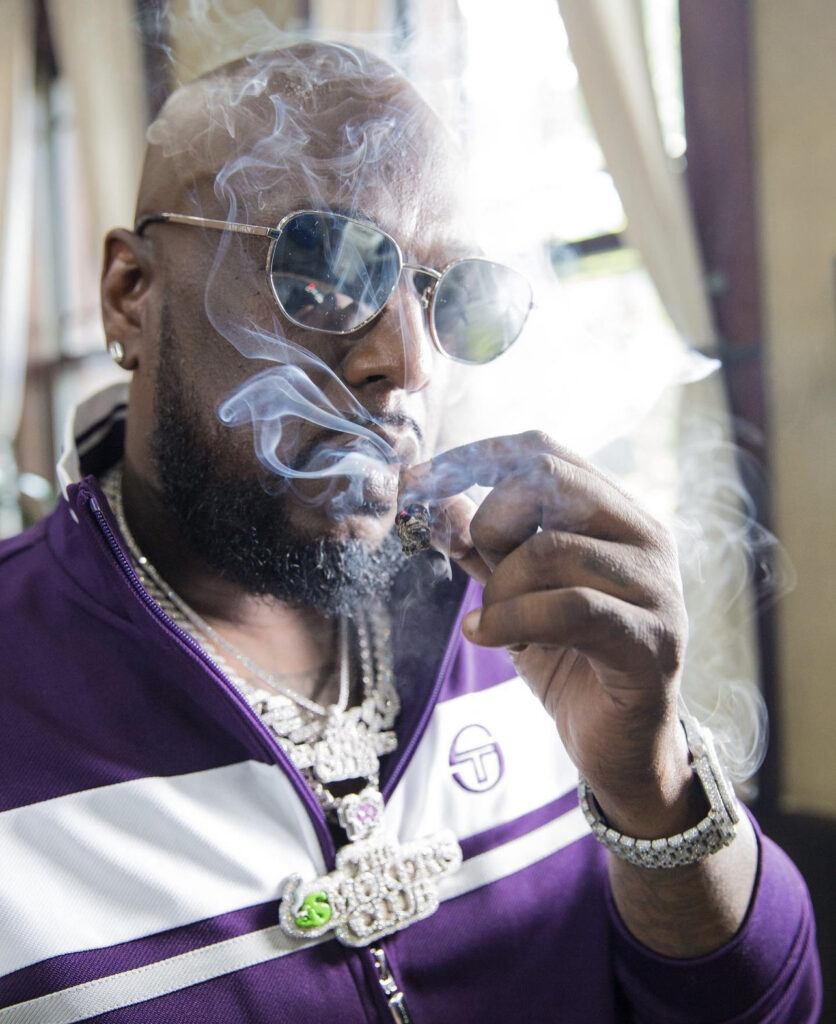
Now that weed is legal in New York, Bubz is wary of those rushing to profit from cannabis culture without fully participating in or appreciating it.
“These are lies for the pursuit of a license, for the pursuit of money,” he told Honeysuckle, referring to investors looking to enter the industry on false pretenses like supporting the legacy community. Thankfully, New York has gone above and beyond to empower local operators over vertical corporations with its adult-use regulations.
9. Build a reputation
Year after year entering the game, Shiest has maintained a rep for having the best cannabis on the East Coast. His partner at Cinematic Music Group, Jonny Shipes, was 19 when he landed Harlem’s best plug, and he’s still thankful Bubz is only one call away.
“He’’s synonymous with good weed. From the day I met him in 2000, he always had the loud pack. So whether it was Piff or the best of the best, you always knew if you went to Bubzy, you were gonna get that.”
Jonny Shipes, CEO Cinematic Music Group, The Smoker’s Club
10. Raise the bar
Today, Shiest continues to raise the bar for great bud with Purp Invaders, a collaboration with Cannatique Farms. “They’re known for the super fire weed,” Bubz said, promising Purp Invaders is “the best in the world.” The buds are available In Sherbinski’s dispensary in California, and 80s-gamer merch can be ordered anywhere through their website.
11. Keep a mystique
“I was like 19. I had just heard about the Piff for the first time and everybody was like, ‘You gotta find this dude Shiest Bubz. He was like the Willy Wonka of Harlem.’ You couldn’t really find him. You had to go up to his crib, and it was hard to get to him.”
Jonny Shipes
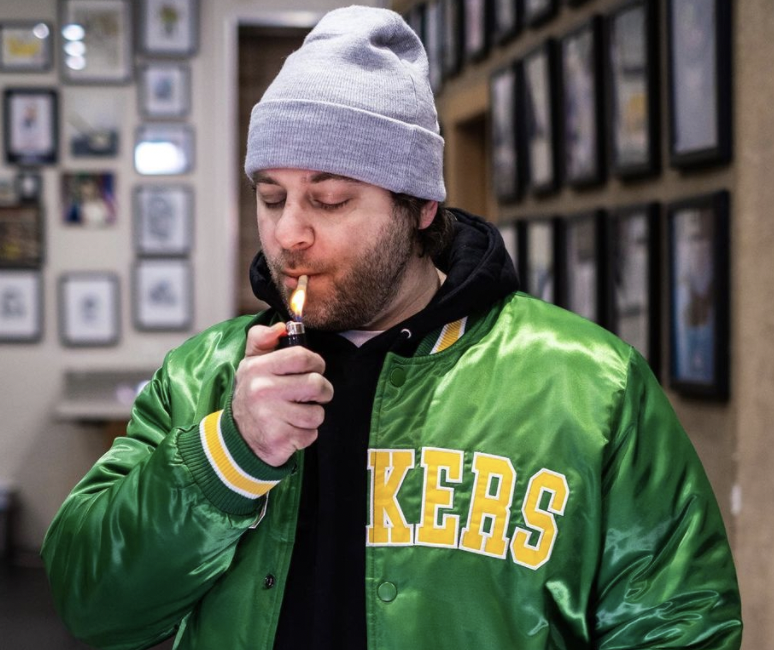
12. Build a community
“The Smokers Club is an evolution of a situation where your local bud dealer has a lot of people coming through and y’all congregate at his spot and smoke weed. That’s how Smoker’s Club started to me, and that’s what it is to a lot of people that can relate to that. It’s basically just hanging out with your boys and your homegirls and getting high and smoking weed and just chilling and kicking shits.”
Shiest Bubz
13. Go global
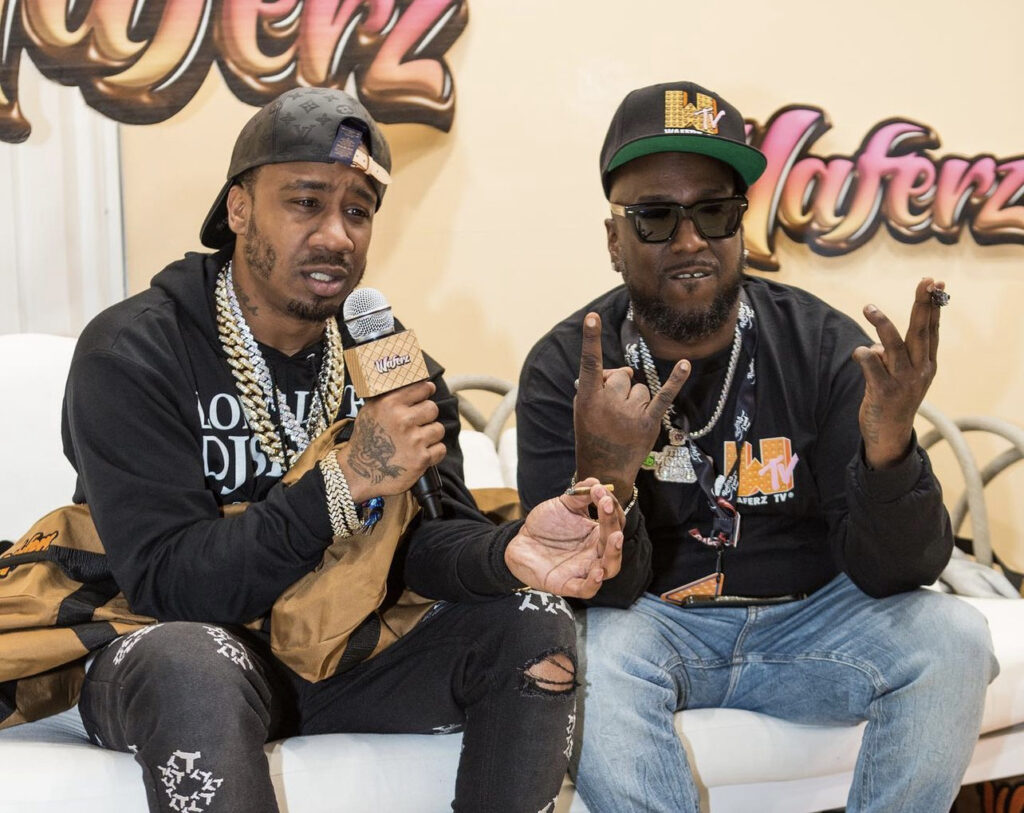
From those humble origins, Bubz and company have elevated their club into a global movement. “The Smoker’s Club is a lifestyle brand,” DZA explained. “It’s culture, it’s history, it all started from a tour we started in 2009 at SXSW. The tour graduated into a festival, and we have one of the best marijuana brands in the world right now. As far as merch, festivals, and actual marijuana goes.”
14. Do good business
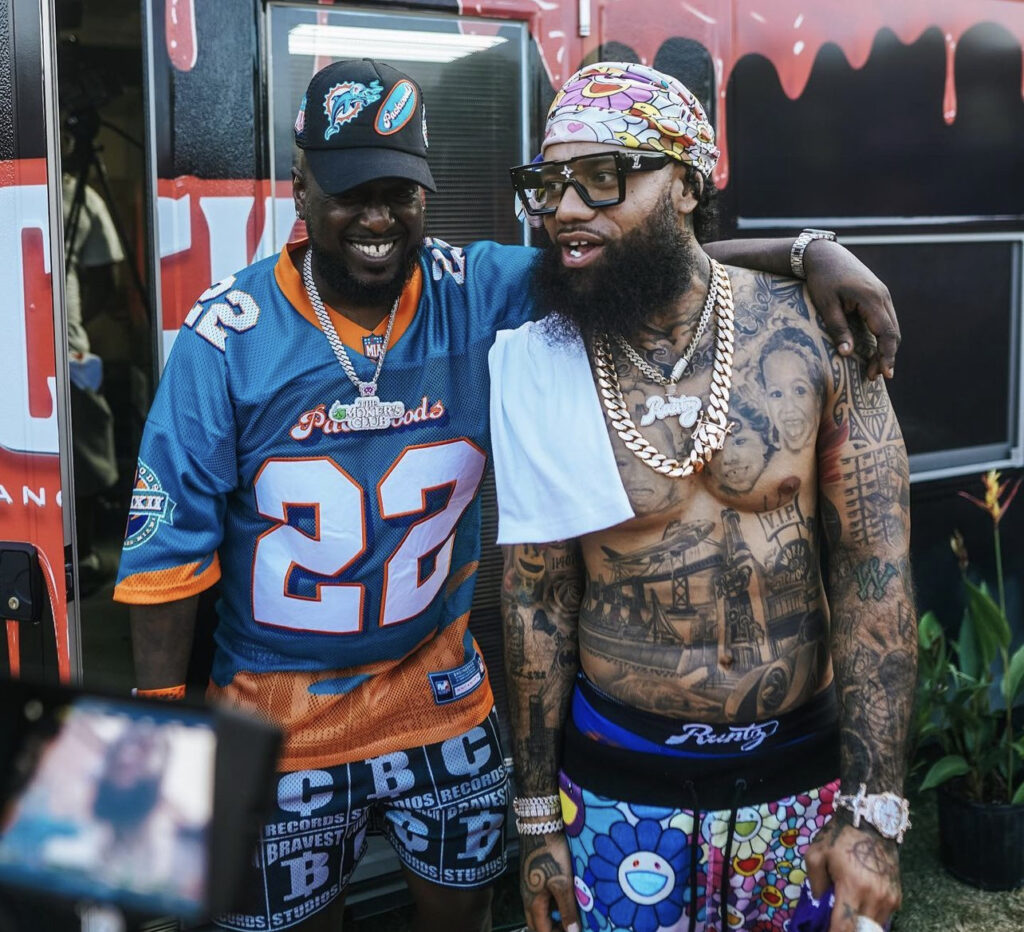
“He does good business. A lot of people don’t do good business, you know what I mean? A lot of dealers you’ll go to, if you try to make a play you’ll get like five, six pounds and it’s supposed to be something. And it’s not that. But you know, with Bubz, it was tested, tried and true. You knew you were getting exactly what you were paying for, even if it was $6,800 a pound [laughs].”
Jonny Shipes
15. Focus on the mission
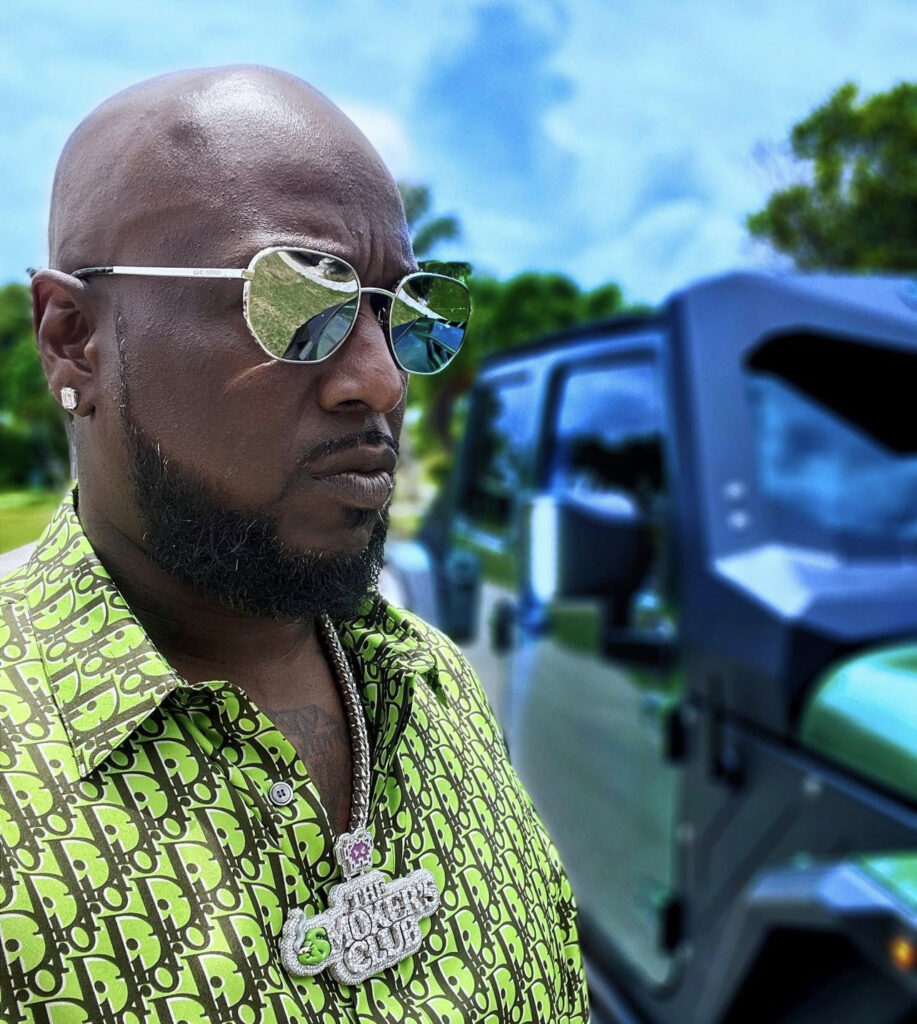
How did Bubz keep his hands and record clean for decades? He stayed true to the plant instead of using it to chase fame, power, or profit. Bubz said he’s raised five kids off cannabis, and relied on it to fund legal music and creative endeavors that got him away from illicit activities for good.
“I play within my parameters of what I’m dealing with. I’m not out here publicly breaking the law. I’m not doing none of that. I’m not here for that. I’m here for the lifestyle and culture of cannabis.”
Shiest Bubz
16. Take care of your people
The roots of The Smoker’s Club trace back to one fact: Shiest Bubz was a life-changing plug. “When I met Shiest Bubz, around ‘02, ‘03, I was privileged to be around the best Purple Haze that New York City had to offer,” Smoker’s Club co-founder Smoke DZA told Leafly.
“Somebody plugged me with Shiest, and he wound up coming down to the studio one night and showing me a pound. It was the best weed I had ever seen at that point, and the rest is history. We just stayed grinding. And then I wound up managing him when he launched Purple City Records. We hustled our whole lives together. From the Black market to wherever it is now”
Jonny Shipes
Related
Tasting Dosidos with Smoke DZA aka The Kush God
17. Take your time
Bubz and his partners at The Smoker’s Club already cracked the code of how to build thriving cannabis businesses pre-legalization years ago. So they’re in no rush to be the first to market in New York’s uncertain legal industry. They’ve put in too many years on the original market to rush into a bad situation in the legal market.
“Seeing New York City now finally go legal, it’s a testament to him and others. They were grinding from the early, early days when we used to ride around in cars and be nervous to get pinched for a fucking blunt or a joint. To see it come full circle, he’s setting himself up for what we got coming next with. I’m sure he’ll wind up with a store. We’ve been going back and forth on what it’s gonna look like.”
Jonny Shipes
18. Leverage your genetics
Bubz’ unique combination of charisma, intellect, and culture was born in Harlem’s St. Luke’s Hospital. His mother came to New York from Louisiana. Bubz’ father, originally from Trinidad, went to Texas before meeting Bubz’ mother on 137th between Broadway in Harlem. His dad was the young rock of his family, leaving for America to pursue an engineering career. His mother worked in accounting for Columbia University, which brought the family to West Harlem, aka Morningside Heights. To this day, Shiest pulls from his rich family history and childhood experiences to connect and build with people from all walks of life.
19. Carry on tradition
“Morningside Heights is Columbia University-owned property. So it’s more like college students, professors, teachers–That’s more the vibe. It’s been gentrified since I could remember growing up. We were always the Black family on the block. So from the time I was little, I’m not gonna lie, the energy was always centered around my parents for being successful. Like, my pops was successful, my mother was successful, and we were their kids. So I always looked at it like we have to be successful. too. It was like a responsibility of their success. And they were mad strict about that too. Like, ‘You’re not gonna make me look bad out here.’ Everything that I did was supposed to be like a reflection of how they raised me. That’s how, that’s how strict they were, And that’s how older people were back then. They wanted their kids to be just like them or following their footsteps or whatever the case may be.
Shiest Bubz
20. Remember the magic
“I grew up in the ‘80s, even though I was born in the ‘70s, I grew up in the ‘80s, you know once you get to the ‘85, 6 years old, you start remembering shit, for real. And one of my most memorable experiences was being in the Bronx on 183rd at my cousin’s house. And he was like 15 years older than me. So when I’m five, he’s 20. And he’s playing me my first rap record, ‘Rappers Delight.’ Like, ‘check this out, little n****.’ And he was out smoking weed at the time. He was like out in the streets. So I’m putting on wild cologne (trying to be like him). He got all the girls. He’s a ladies man. I’m like, ‘Oh shit, this music is fire.’ And growing up on Hip Hop and going to school downtown with a diverse group of kids, I always stood out as being like, ‘Yo, he knows that street shit, that rap shit. Like how do you know that? Who exposed you to that? Your parents ain’t on that type of time.’ So rap music and Hip Hop has been the timeline for me wanting to be outside and be active in everything since day one.”
Shiest Bubz
21. Resist the stigma
“My mother always used to be kind of against [Hip Hop]. But that’s what I was tapping into. It was on the radio, so I’d sneak the radio under my pillow. I’m listening to DJ Red Alert. So this is when rap wasn’t even on Hot 97, this is back when it was on 92 KTU. I used to get props for just knowing rap records and knowing the lyrics of certain songs and shit. And they’d be like, ‘How you know that shit? Oh, he’s cool. He knows all the latest stuff.’”
Related
Cypress Hill’s new single breaks down the highs and lows of the legal weed game
22. Normalize the nug
Hip Hop wasn’t a gateway to weed, but Bubz saw the two worlds overlap quickly in the 90s. Artists began to mainstream the plant with music like Dr. Dre’s The Chronic, and Cypress Hill’s “Hits From The Bong.”
“We were smoking weed and listening to Jodeci and shit like that trying to get women,” Bubz told Leafly. “Then Dr. Dre’s The Chronic album changed the dynamics,” Bubz recalled. “Like, n****s was talking about weed and it was normalized already ‘cause we were smoking outside on some ‘f*** the police’ shit. So any rap songs with references to smoking blunts or smoking weed or joints or weed? We were eating it all up. Every bit of it.”
Shiest Bubz
Related
The 23 dankest lyrics about loud weed
23. Be in the building
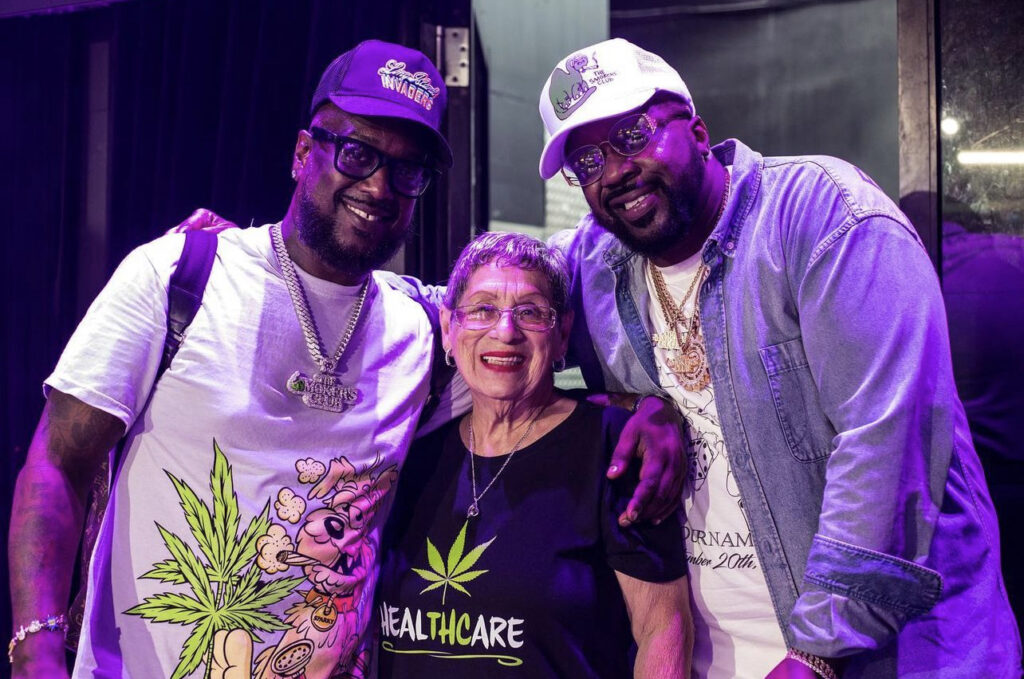
Bubz has known Happy Munkey’s Vlad Bautista since the 90s when both worked the original market. Both are now major influencers in the cannabis space thanks in part to one principle: “You must be in the room to influence change.”
At Vlad’s 40th birthday party at The Dream Hotel in December, Bubz told Pothead University, “I’ve known (Vlad) since I was a teenager. He’s still out here repping for the culture not the vultures.” And Bubz doesn’t just show his face at parties. He can also dip into the political space. “Even though it seems as if I’m in a political role in cannabis, I’m actually not, I’m actually there to gain information first hand instead of word of mouth,” Bubz told Leafly after he spoke with New York’s cannabis regulators about how to protect and empower original operators from those treating the gray market like a gold rush.
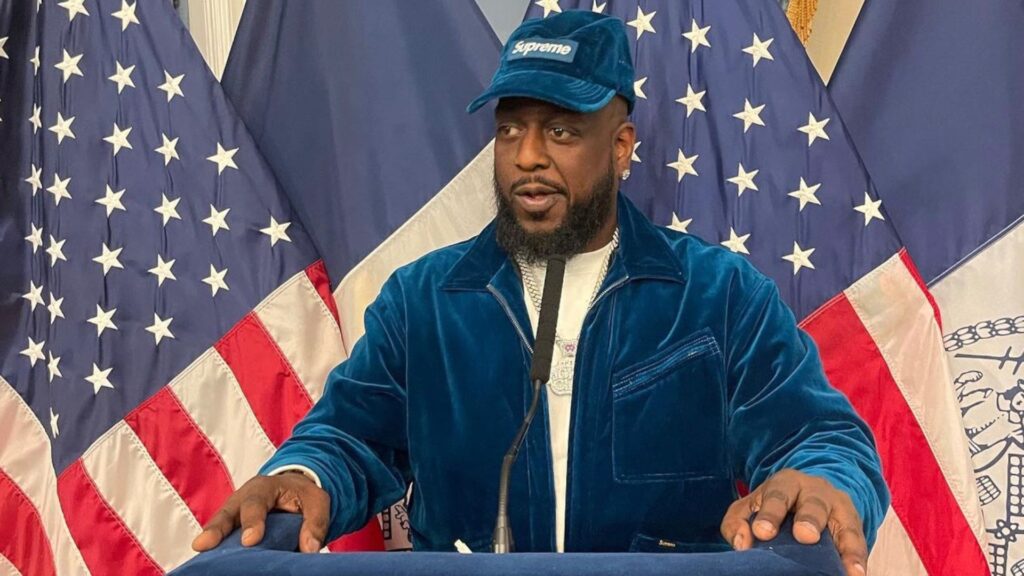
“I’m not just sitting back and waiting for someone to translate something to me. I’m actually putting my due diligence to try to be in those rooms where the conversation is happening. Because I look at a lot of the people who play these positions in cannabis as inexperienced. They know law writing and cliche paperwork.”
Shiest Bubz
24. Legitimize your grind
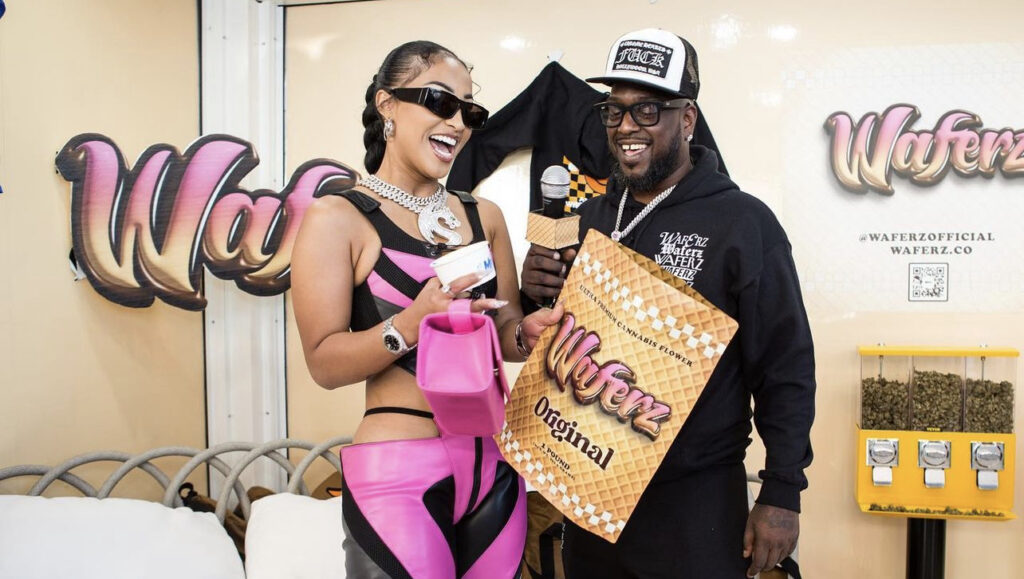
Bubz did not wait for a license to turn his cannabis hustle legit. After decades of providing bud for famous and local clientele in New York, Bubz partnered with Rolling Loud and Packwoods to become an ambassador that gifts artists weed in their suites. Now, he gets paid to do what he’s always done in New York City: Connect VIPs with very important packs.
In 2007, Bubz said he learned the legacy-to-legal grind from rapper and exec Jim Jones in the music space. “Jim Jones took me to a lot of label meetings and taught me how to flip the street game to the rap game, because there is a difference,” Shiest said. “Cam’ron also taught me a lot about the game,” Shiest said while promoting Purple City.
25. Empower the people
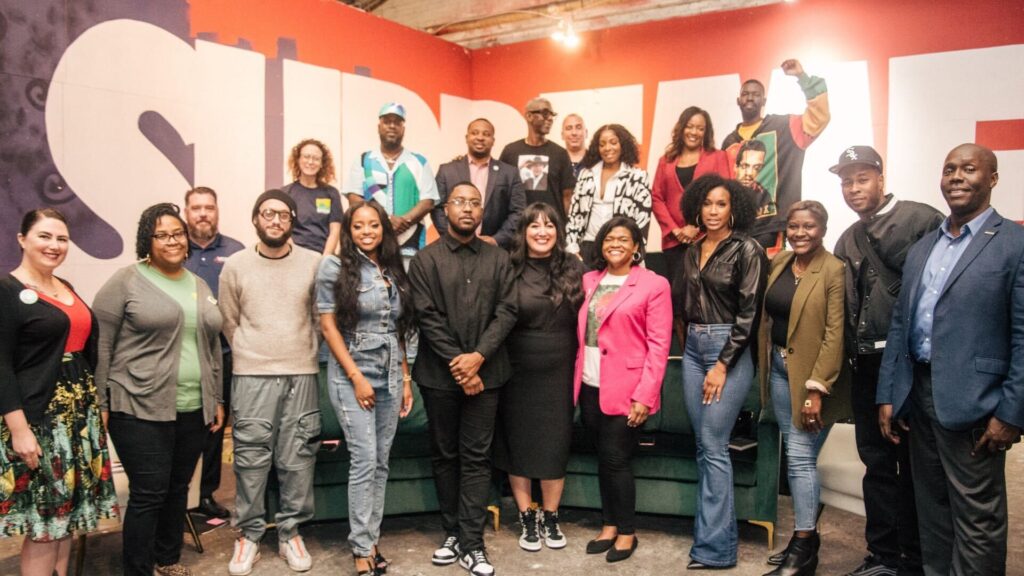
Bubz was one of many cannabis entrepreneurs in support of New York cannabis workers’ push to unionize. At the Black CannaBiz Expo in New Orleans in 2022. UFCW is one of the country’s largest workers’ unions, and Bubz has given his full support to the movement to get all New York budtenders and cannabis employees union protections.
Related
New Yorkers may soon be buying weed from union budtenders. Here’s why
26. Collaborate don’t compete
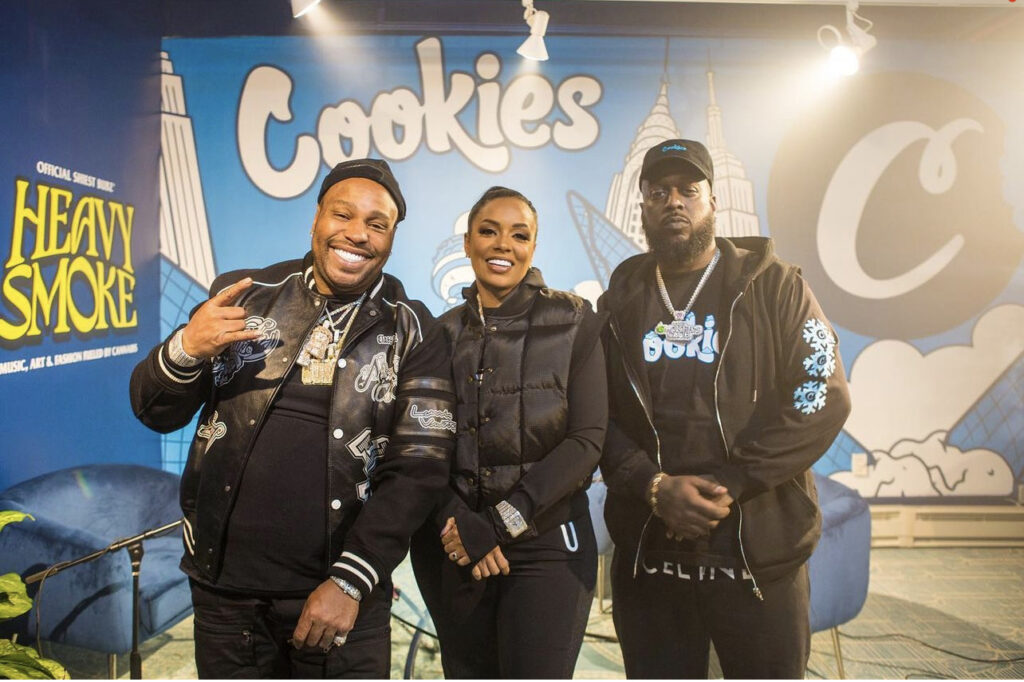
There’s a lot of competition to dominate New York’s growing cannabis culture. But Shiest is not getting pulled into rivalries with his fellow operators. There’s way too much weed to sell, and too many smokers to serve to be worried about the next operation. Thankfully, the Heavy Smoke podcast is the perfect platform for Bubz to show the entire community that cooperation is key. One of the show’s best interviews to date was with The GUMBOs, Luka Brazi and Alexis Major. From their shared roots in Harlem’s Dipset era, to their bright futures ahead in the legal game, it’s truly inspiring to see the cannabis industry’s pioneers join forces in representing positivity.
27. Stay ahead of the curve
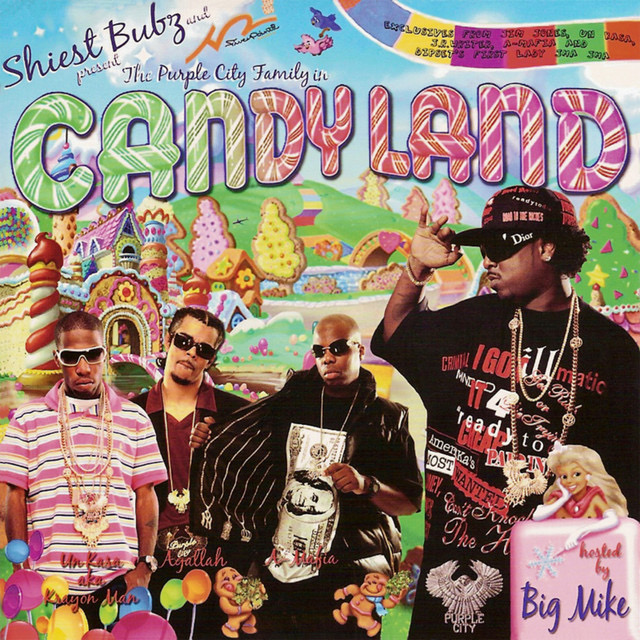
During the 2000s, Bubz was at the forefront of online cross-branding and marketing music and marijuana. Unlike many of his peers, he didn’t need a major label or marketing department to capture the attention of listeners nationwide. And long before artists like Berner, Wiz, and JAY-Z used their music platforms to brand bud, Bubz was branding his purple piff across the East Coast with flashy album covers, gaudy fashion, and well-produced mixtapes under the Purple City name. Today, he sees the entire industry building on his blueprint and can’t help but feel ahead of his time.
“We got the internet, so the things that were so ritual to us back in the days, are just a normality. Now it’s like if you got the brand, you got your bag, you got your shirt, you know what I mean? You got a song, it’s all regular, it’s all cliche. It’s like a wheel turning now.”
Shiest Bubz on branding in cannabis
Related
Berner is among music’s wealthiest artists—and it’s thanks to legal weed
28. Be legendary
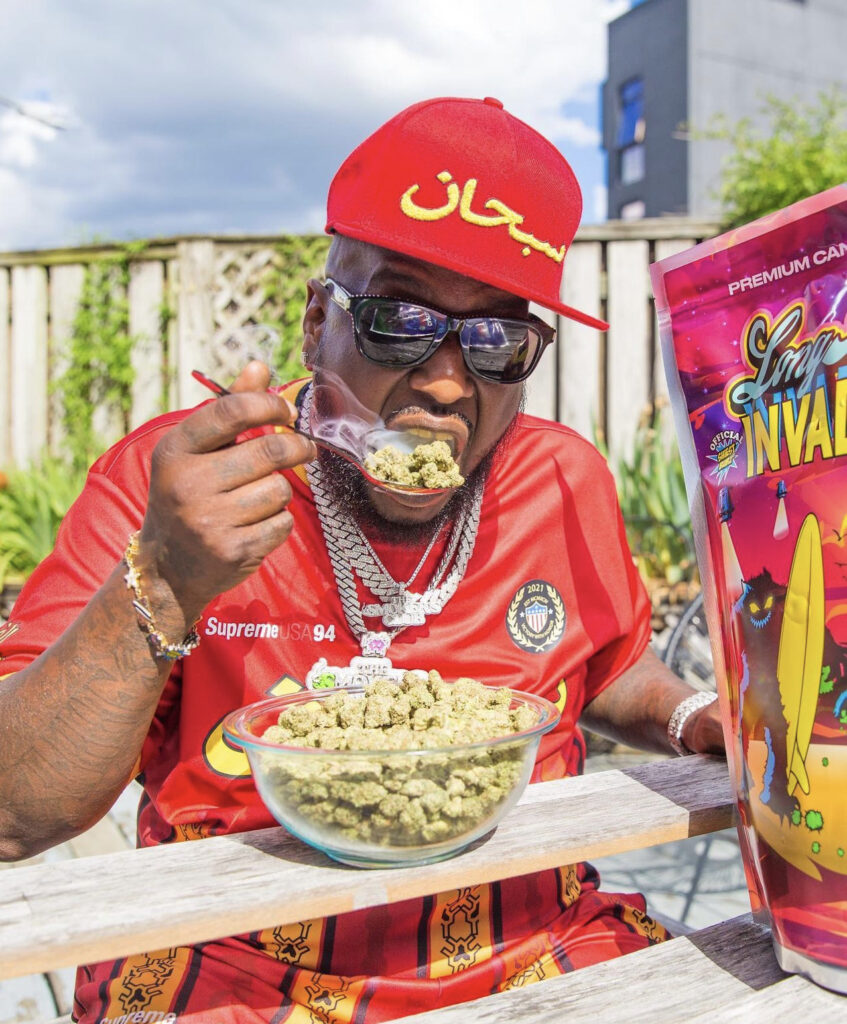
After giving it some time, Bubz is coming around on that hot-button “legacy,” term. “I like the word legacy,” he told Leafly in January. “I just feel–like I said before,” referring to his Honeysuckle interview. He still questions the intentions of those using the term, holding strong that the cannabis landscape is not fertile terrain to be colonized and capitalized. Original members were buying and selling weed before it became regulated. And they will continue to, with or without the government’s permission, or the legal industry’s euphemisms.
“It’s all good. I rock with “legacy.” It dresses up what we’ve done for so many years in a better way… I just feel like true legacy has to be recognized and not just as one or two persons like myself. I’m not trying to wear any hat like that. If I have to, I will. To make sure the market and the people who built this market have some type of outlet to participate legally in the game.”
Shiest Bubz
Just remember this: When it comes to cannabis. Shiest Bubz isn’t just legacy. He’s legend.







































